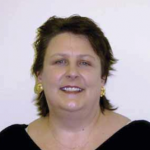Most of us want to take good care of our teeth. Footing the bill of a single trip to the dentist, however, could cost many patients more than they can afford. The cost of root canal treatment, for example, can vary greatly, depending on what practice an individual attends, whether they require specialist treatment, as well as the quality of service and experience the surgeon has to offer – private practices could charge anything from £95 up to £700.[i] Without an effective method of paying for essential dental care, many patients can be put out of pocket very easily and, in fact, high prices are one of the driving factors behind why some people avoid seeing the dentist. This, as practitioners know, can be detrimental to a person’s overall health.
Can’t Pay… There is a Way
Healthcare cash plans help individuals cover the price of everyday medical costs, including dental treatment. While they may sound like a fairly new concept, cash plans, have a long heritage dating as far back as the 1870s. They were created as a way for people to access medical treatment that they could not otherwise afford. In their earliest form, cash plans were known as Hospital Saturday Funds, and allowed workers to contribute a small amount of their earnings on payday (traditionally a Saturday) to fund medical care when they needed it.
When the National Health Service (NHS) was founded in 1948, cash plan providers restructured their services to reimburse members for care that was not covered by the NHS, which now could include dental treatments, optical check-ups and alternative therapies.[ii] Private medical insurance (PMI), on the other hand, is designed to cover the less frequent, but more acute and impactful medical conditions which, generally, require patients to stay in hospital. Whilst PMI only pays out in an emergency, a cash plan can be an inexpensive way of paying for routine healthcare. For a fixed monthly fee, an individual could take out a personal plan, or a plan can be provided as an employee benefit.
It is important to note that cash plans are not an alternative to PMI, but they can complement the services and benefits often received as part of a PMI policy. In fact, many companies take out healthcare cash plans to cover the cost of any excesses arising from business PMI policies they offer – this can result in an overall reduction in premiums, while ensuring that the everyday health concerns of employees are taken care of.
Money that Goes Further
There are many cash plans available to choose from, and they all aim to save patients money, but with a Munroe Sutton Healthy Discounts membership, those savings can go even further. No matter if a patient has a cash plan or not, they can still take advantage of the Healthy Discounts scheme, which offers a 20 percent saving on all dental care. Patients simply make one annual payment to become a Healthy Discounts member, and they are free to attend any participating practitioner they wish, with no penalties if they decide to switch. At the appointment, they present their membership ID card to receive discounted treatment, and pay for it upfront at the time of service – with no complicated forms or paperwork to fill in. Members who already have a cash plan can use their discount and file their claim for reimbursement, making dental care far more affordable.
With the ability to include their families on the same plan, members can also use their discount as many times as they like on all types of dental care including:
- Routine examinations and cleanings
- X-rays
- Fillings
- Root canal treatment
- Crowns
- Veneers
- Dentures
- Braces
- Tooth whitening
Munroe Sutton can also help employers offer healthcare benefits to their employees in order to give thanks and appreciation for hard work. The expert team at Munroe Sutton will work with employers to create bespoke plans which can be integrated into their current offerings. Not only are these plans designed to fit the needs of each business, but also reduce the cost of quality dental treatment for employees – helping to improve overall job satisfaction and employee retention, as well as reducing sickness absence and workplace stress for a happier, healthier life.

In exchange for offering lower rates, Munroe Sutton works tirelessly to advertise and market participating dental practices through some of the world’s largest financial, healthcare and insurance institutions. This comes at no expense to practitioners, providing a new way of attracting patients and increasing treatment acceptance rates. To help you manage the inevitable boost of appointments, Munroe Sutton will provide professional support and advice so that practices are better prepared for the future.
For more information, please call 0808 234 3558 or visit www.munroesutton.co.uk
Price should not be a barrier to attaining the quality care we all deserve in order to maintain the health of our teeth. While private dental care fees have
[i] Pearl, J. (Unknown) Private and NHS dental charges. Link: https://www.which.co.uk/reviews/dentists/article/private-and-nhs-dental-charges. [Last accessed: 17.01.18].
[ii] Patton, R. (2012) Buyer’s guide to health case plans 2012. Link: https://www.employeebenefits.co.uk/issues/august-2012-online/buyers-guide-health-cash-plans-2012/. [Last accessed: 17.01.18].





 Charlotte Monk is a Foundation Dentist at Rodericks Dental’s Mile House Dental Practice in Staffordshire. Here she shares her inspirational story of balancing the demands and pressures of dentistry with that of her other love – dressage.
Charlotte Monk is a Foundation Dentist at Rodericks Dental’s Mile House Dental Practice in Staffordshire. Here she shares her inspirational story of balancing the demands and pressures of dentistry with that of her other love – dressage.










